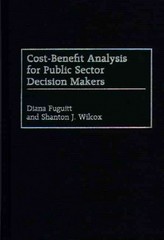Question
EXERCISES IN RELEVANT COSTING AND PROFIT PLANNING (BUDGETING) ANSWER THE FOLLOWING: 1.What is an opportunity cost and why is it a relevant cost? 2.What are
EXERCISES IN RELEVANT COSTING AND PROFIT PLANNING (BUDGETING)
ANSWER THE FOLLOWING:
1.What is an opportunity cost and why is it a relevant cost?
2.What are three characteristics of relevant information?
3.Why are fixed costs generally more relevant in long-run decisions than short-run decisions?
4.Why is depreciation expense irrelevant to most managerial decisions, even when it is a future cost?
5.Define and discuss outsourcing.
6.What is the relationship between scarce resources and an organization's production capacity?
7.What are some factors that a company must consider when deciding to raise or lower sales prices on products?
8.Under what circumstances is the sum of variable production and selling costs the appropriate minimum price for special orders?
9.Define segment margin and explain why it is a relevant measure of a segment's contribution to overall organizational profitability.
10.Explain why managers might want to build slack into a budget.
11.What role does the budgeting activity play in managerial compensation and performance evaluation?
12.Why will there frequently be a difference between the budgeted cost of material in the material purchases budget and the budgeted cash disbursement for material in the cash budget?
13.Explain why different types of organizations will have different sets of budgets.
14.Why have many managers in recent years moved toward emphasizing employee participation in the budgeting process rather than simply imposing the budget on the employees?
15.What are some of the benefits of a well-prepared budget?
Problem 1Willborn Builders in the building construction business. In Year 2, it is expected that 40 percent of a month's sales will be collected in cash, with the balance being collected the following month. Of the purchases, 50 percent are paid the following month, 30 percent are paid in two months, and the remaining 20 percent are paid during the month of purchase. The sales force receives $2,000 a month base pay plus a 2 percent commission. Labor expenses are expected to be $4,000 a month. Other operating expenses are expected to run about $2,000 a month, including $500 for depreciation. The ending cash balance for Year 1 was $4,500.
Sales
Purchases
Year 1-Actual
November
$80,000
$70,000
December
90,000
80,000
Year 2-Budgeted
January
70,000
70,000
February
90,000
60,000
March
30,000
50,000
Required:
a.
show cash budget and determine the projected ending cash balances for the first three months of Year 2.
b.
Determine the months that the company would either borrow or invest cash.
Problem2Data concerning manufacturing overhead for Friendly Company are presented below. The Mixing Department is a cost center.
An analysis of the overhead costs reveals that all variable costs are controllable by the manager of the Mixing Department and that 50% of supervisory costs are controllable at the department level.
The flexible budget formula and the cost and activity for the months of July and August are as follows:
Flexible Budget Per
Direct Labor HourActual Costs and Activity
JulyAugust
Direct labor hours6,0007,000
Overhead costs
Variable
Indirect materials$3.50$20,500$25,100
Indirect labor6.0039,50040,700
Factory supplies1.007,6008,200
Fixed
Depreciation$20,00015,00015,000
Supervision25,00023,00026,000
Property taxes10,00012,00012,000
Total costs$117,600$127,000
Instructions
(a)Prepare the responsibility reports for the Mixing Department for each month.
(b)Comment on the manager's performance in controlling costs during the two month period.
Problem 3Yount Company has budgeted the following unit sales:
2019Units
January10,000
February8,000
March9,000
April11,000
May15,000
The finished goods units on hand on December 31, 2018, was 1,000 units. Each unit requires 2 pounds of raw materials that are estimated to cost an average of $4 per pound. It is the company's policy to maintain a finished goods inventory at the end of each month equal to 10% of next month's anticipated sales. They also have a policy of maintaining a raw materials inventory at the end of each month equal to 20% of the pounds needed for the following month's production. There were 3,920 pounds of raw materials on hand at December 31, 2018.
Instructions
For the first quarter of 2019, prepare (1) a production budget and (2) a direct materials budget.
Step by Step Solution
There are 3 Steps involved in it
Step: 1

Get Instant Access to Expert-Tailored Solutions
See step-by-step solutions with expert insights and AI powered tools for academic success
Step: 2

Step: 3

Ace Your Homework with AI
Get the answers you need in no time with our AI-driven, step-by-step assistance
Get Started


